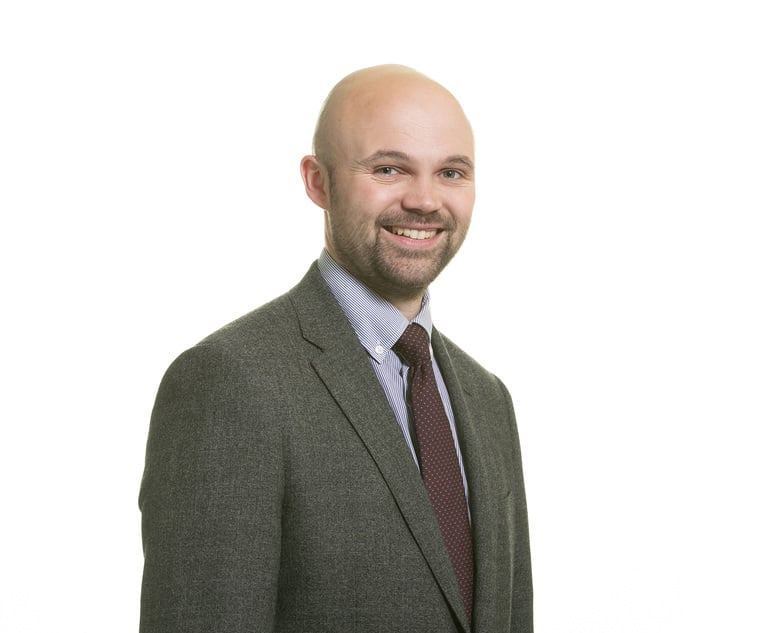How to make technology central to your firm's strategy
Technology is going to transform the legal profession but firms need to work out their strategy now to secure a competitive advantage
February 20, 2018 at 06:03 AM
5 minute read
The original version of this story was published on Law.com
The development of technology in the delivery of a law firm's services will have a profound effect on the future size, design, profitability and structure of a law firm. As a result, firms need to understand the potential impact of technology on their business and ensure that their strategy properly anticipates and provides for the changes that it will cause.
Technology was, until recently, just part of the plumbing of law firms. It enabled effective document production, time recording, billing and collection and provided a level of financial information on the performance of various parts of the business.
But now, technology is starting to have a major impact on the delivery of legal services. Initially, it has been focused on the analysis of large amounts of data for discovery in litigation, investigations for regulatory compliance and due diligence in relation to corporate and property transactions.
In the next few years it will increasingly move up the 'food chain', with smart contracts and process management eating into areas traditionally reserved for lawyers. The ability to analyse extensive banks of data will enable lawyers to develop negotiating strategies for M&A and other transactions based on extensive analysis of what was or was not acceptable in previous transactions, thereby moving towards the quicker conclusion of an agreed deal. The development of analytics will enable the likelihood or otherwise of success in litigation to be more clearly defined at an early stage, thereby increasing the likelihood of early settlement.
The ability of lawyers to work remotely and flexibly and the effective use of lawyers to work when required (on a contract basis rather than as permanent full-time employees) may materially impact the number of full-time employees needed by a firm and the location and amount of office space necessary to house them.
The UK, largely due to the increased pressure from GCs to modernise service delivery, demonstrate real value and to provide predictable pricing, is at the forefront of the legal tech industry. Accordingly, UK-based law firms have the opportunity to lead this transformation and to achieve a competitive advantage over other countries while reinforcing the role of English law and English lawyers in a post-Brexit environment.
Law firms, when preparing any strategy, need to ask themselves the following questions:
- What impact is technology likely to have on each section of the firm in terms of the price, method of delivery and delivery model?
- How much money and time will the firm need to devote to the development and implementation of technology?
- How prepared is the firm to be an innovator in the use of technology or a follower as certain technologies become established?
- What size will the firm need to be to afford and effectively utilise new technologies?
- To what extent can lawyers and paralegals be used on demand rather than as a fixed cost (eg LOD for lawyers or F-Lex for paralegals)?
- Will the firm need to recruit other professionals such as project managers, process mappers, pricing experts and legal IT professionals to enable such change?
- What requirement will the firm have for trainees, junior lawyers and senior lawyers, how will they be trained, what will their career progression be and what level of attrition will be necessary or desirable?
- What does this mean for the partnership model? Are partners with real client relationship skills and business acumen undervalued while paper producers overvalued?
- Does the firm need outside capital to provide extra working capital and to facilitate a change to the structure and culture of the firm?
Technology during the next five to 10 years is likely to have a profound impact on a range of professional and administrative services. Law will not be immune from this change. Fortunately, change in legal services tends to be evolutionary rather than revolutionary so firms have time to adapt. Also, for many firms, law is still a very profitable business, so firms can afford to change but this profitability also presents a potential impediment to change.
Any firm undertaking a meaningful strategy review has to factor technological change into its thinking. This may require some hard decisions to be made about practice areas to invest in or even divest, and the future needs and skills required by the lawyers and partners of tomorrow. By starting to address issues now, a firm will be well placed to adjust before it is forced to do so. The status quo may feel comfortable, but it can be the most dangerous place in such a dynamic market.
Tony Williams is the founder of Jomati Consultants and a former managing partner of Clifford Chance and Andersen Legal. Janet Day spent 19 years as IT director at Berwin Leighton Paisner before becoming an independent consultant.
- This year's Strategic Technology Forum will once again take place at the Grand Hotel Des Iles Borromees, Lake Maggiore, Italy on 20-22 June. Key topics will include how law firms can defeat the competition to attract the best talent, as well as how to adapt and engage with alternative providers taking a more significant place in the legal market. Please click here to view the full conference programme and book your place.
NOT FOR REPRINT
© 2025 ALM Global, LLC, All Rights Reserved. Request academic re-use from www.copyright.com. All other uses, submit a request to [email protected]. For more information visit Asset & Logo Licensing.
You Might Like
View All

Are Firms and In-House Teams Courting Technological Debt With Ambitious Purchases?
6 minute read
Navigating AI Risks: Best Practices for Compliance and Security

Trending Stories
- 1Midsize Firm Bressler Amery Absorbs Austin Boutique, Gaining Four Lawyers
- 2Bill Would Allow Californians to Sue Big Oil for Climate-Linked Wildfires, Floods
- 3LinkedIn Suit Says Millions of Profiles Scraped by Singapore Firm’s Fake Accounts
- 4Supreme Court Agrees to Hear Lawsuit Over FBI Raid at Wrong House
- 5What It Takes to Connect With Millennial Jurors
Who Got The Work
J. Brugh Lower of Gibbons has entered an appearance for industrial equipment supplier Devco Corporation in a pending trademark infringement lawsuit. The suit, accusing the defendant of selling knock-off Graco products, was filed Dec. 18 in New Jersey District Court by Rivkin Radler on behalf of Graco Inc. and Graco Minnesota. The case, assigned to U.S. District Judge Zahid N. Quraishi, is 3:24-cv-11294, Graco Inc. et al v. Devco Corporation.
Who Got The Work
Rebecca Maller-Stein and Kent A. Yalowitz of Arnold & Porter Kaye Scholer have entered their appearances for Hanaco Venture Capital and its executives, Lior Prosor and David Frankel, in a pending securities lawsuit. The action, filed on Dec. 24 in New York Southern District Court by Zell, Aron & Co. on behalf of Goldeneye Advisors, accuses the defendants of negligently and fraudulently managing the plaintiff's $1 million investment. The case, assigned to U.S. District Judge Vernon S. Broderick, is 1:24-cv-09918, Goldeneye Advisors, LLC v. Hanaco Venture Capital, Ltd. et al.
Who Got The Work
Attorneys from A&O Shearman has stepped in as defense counsel for Toronto-Dominion Bank and other defendants in a pending securities class action. The suit, filed Dec. 11 in New York Southern District Court by Bleichmar Fonti & Auld, accuses the defendants of concealing the bank's 'pervasive' deficiencies in regards to its compliance with the Bank Secrecy Act and the quality of its anti-money laundering controls. The case, assigned to U.S. District Judge Arun Subramanian, is 1:24-cv-09445, Gonzalez v. The Toronto-Dominion Bank et al.
Who Got The Work
Crown Castle International, a Pennsylvania company providing shared communications infrastructure, has turned to Luke D. Wolf of Gordon Rees Scully Mansukhani to fend off a pending breach-of-contract lawsuit. The court action, filed Nov. 25 in Michigan Eastern District Court by Hooper Hathaway PC on behalf of The Town Residences LLC, accuses Crown Castle of failing to transfer approximately $30,000 in utility payments from T-Mobile in breach of a roof-top lease and assignment agreement. The case, assigned to U.S. District Judge Susan K. Declercq, is 2:24-cv-13131, The Town Residences LLC v. T-Mobile US, Inc. et al.
Who Got The Work
Wilfred P. Coronato and Daniel M. Schwartz of McCarter & English have stepped in as defense counsel to Electrolux Home Products Inc. in a pending product liability lawsuit. The court action, filed Nov. 26 in New York Eastern District Court by Poulos Lopiccolo PC and Nagel Rice LLP on behalf of David Stern, alleges that the defendant's refrigerators’ drawers and shelving repeatedly break and fall apart within months after purchase. The case, assigned to U.S. District Judge Joan M. Azrack, is 2:24-cv-08204, Stern v. Electrolux Home Products, Inc.
Featured Firms
Law Offices of Gary Martin Hays & Associates, P.C.
(470) 294-1674
Law Offices of Mark E. Salomone
(857) 444-6468
Smith & Hassler
(713) 739-1250









